#excuse me for liking positive black latino representation
Text
"You mostly like Miles Morales because he's Black Latino..."

#excuse me for liking positive black latino representation#Miles Morales#spiderman#spiderman: miles morales#spiderman: into the spiderverse#itsv#into the spiderverse#into the spider verse#text post
45 notes
·
View notes
Text
Reframing Films of the Past: An Interview with TCM Writers
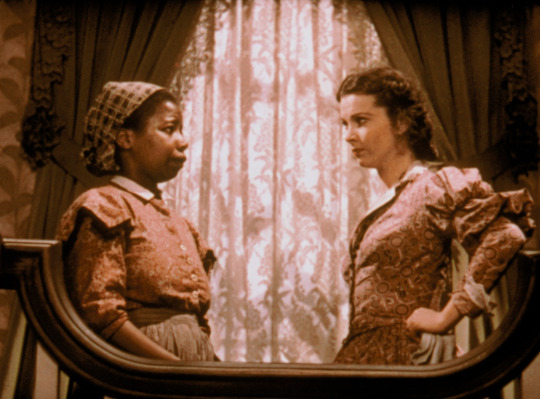
All month long in March, TCM will be taking a look at a number of beloved classic films that have stood the test of time, but when viewed by contemporary standards, certain aspects of these films are troubling and problematic. During TCM’s Reframed: Classics in the Rearview Mirror programming, all five TCM hosts will appear on the network to discuss these issues, their historical and cultural context and how we can keep the legacy of great films alive for future generations.
Also joining in on this conversation are four TCM writers who were open enough to share their thoughts on their love of classic movies and watching troubling images of the past. Special thanks to Theresa Brown, Constance Cherise, Susan King and Kim Luperi for taking part in this conversation. Continue the conversation over on TCM’s Twitter.
What do you say to people who don’t like classics because they’re racist and sexist?
KL: There are positive representations in classic Hollywood that I think would blow some peoples’ minds. I always love introducing people to new titles that challenge expectations.
That said, anyone who broadly slaps a sexist or racist label on a large part of the medium’s history does a disservice to cinema and themselves. That mindset keeps them ignorant not only of some excellent movies and groundbreaking innovation but history itself.
I think people need to remember that movies are a product of their time and they can reflect the society they were made into a variety of degrees - good, bad, politically, culturally, socially. That’s not to excuse racism or sexism; it needs to be recognized and called out as such for us to contend with it today. But it’s important for people who say they don’t like classics for those reasons to understand the historical context. In particular, we need to acknowledge that society has evolved - and what was deemed socially acceptable at times has, too, even if sexism and racism are always wrong - and we are applying a modern lens to these films that come with the benefit of decades worth of activism, growth and education.
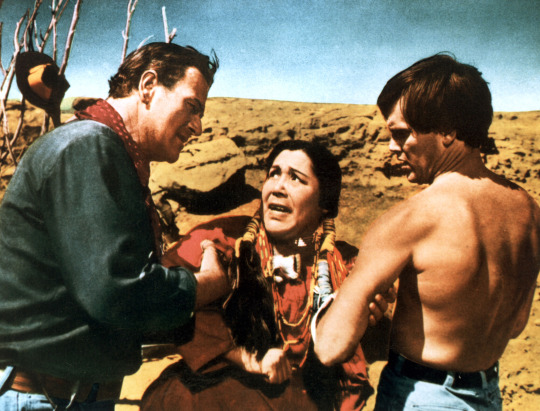
SK: I totally agree K.L. For years I have been encouraging people to watch vintage movies who keep proclaiming they don’t like black-and-white films or silent films. For every Birth of a Nation (1915) there are beautiful dramas, wonderful comedies and delicious mysteries and film noirs.
These films that have racist and sexist elements shouldn’t be collectively swept under the rug, because as K.L. stated they shine a light on what society was like – both good and bad.
CC: First off, fellow writers may I say, I think your work is amazing. I'm continually learning from the talent that is here, and I am humbled to be a part of this particular company. Similar to the prior answers, for every racist/sexist film the opposite exists. Personally, classic musicals attracted me due to their visual assault, creativity and their unmistakable triple-threat performances. While we cannot ignore racist stereotypes and sexism, there are films that simply are "fantasies of art." There is also a review of evolution. In 20 years, what we now deem as acceptable behavior/conversation will be thought of as outdated and will also require being put into "historical context." What we collectively said/thought/did 20 years ago, we are currently either re-adjusting or reckoning with now, and that is a truth of life that will never change. We will always evolve.
TB: I would say to them they should consider the times the movie was made in. It was a whole different mindset back then.
Are there movies that you love but are hesitant to recommend to others because of problematic elements in them? If so, which movies?
TB: Yes, there are movies I’m hesitant to recommend. The big one, off the top of my head, would be Gone With the Wind (1939). The whole slavery thing is a bit of a sticky wicket for people, especially Black folks. Me, I love the movie. It is truly a monumental feat of filmmaking for 1939. I’m not saying I’m happy with the depiction of African Americans in that film. I recognize the issues. But when I look at a classic film, I suppose I find I have to compartmentalize things. I tend to gravitate on the humanity of a character I can relate to.
KL: Synthetic Sin (1929), a long thought lost film, was found in the 2010s, and I saw it at Cinecon a few years ago. As a Colleen Moore fan, I thoroughly enjoyed most of it, but it contains a scene of her performing in blackface that doesn’t add anything to the plot. That decision brings the movie down in my memory, which is why I have trouble recommending it.
Also Smarty (1934), starring Warren William and Joan Blondell, is another movie I don’t recommend because it’s basically about spousal abuse played for comedy, and it did not age well for that reason.
SK: Breakfast at Tiffany’s (1961): Audrey Hepburn is my favorite actress and I love her Oscar-nominated performance as Holly. I adore Orangy as Cat, as well as George Peppard and Buddy Ebsen, who is wonderfully endearing. And of course, “Moon River” makes me cry whenever I hear it. But then I cringe and am practically nauseous every time Mickey Rooney pops up on screen with his disgusting stereotypical performance as Holly’s Japanese landlord Mr. Yunioshi. What was director Blake Edwards thinking casting him in this part? Perhaps because he’s such a caricature no Japanese actor wanted to play him, so he cast Rooney with whom he had worked within the 1950s.
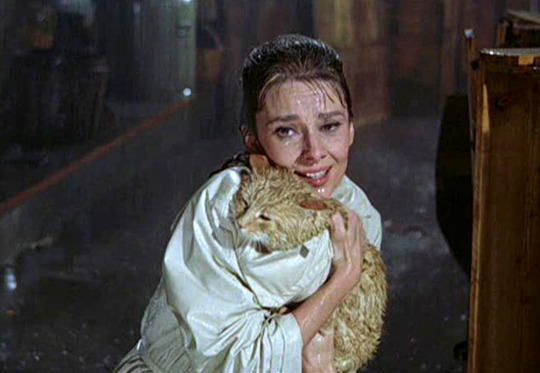
CC: I cannot necessarily state that I am in "love," but, a film that comes to mind would be Anna and the King of Siam (1946). It is an absolutely beautiful visual film. However, Rex Harrison as King Mongkut requires some explanation.
Holiday Inn (1942), and the Abraham number...why??? Might I also add, there were many jaw-dropping, racist cartoons.
How did you learn to deal with the negative images of the past?
KL: I often look at it as a learning experience. Negative images can provoke much-needed conversation (internally or with others) and for me, they often prompt my education in an area that I wasn’t well versed in. For instance, blackface is featured in some classic films, and its history is something I never knew much about. That said, seeing its use in movies prompted me to do some research, which led me first to TCM’s short documentary about blackface and Hollywood. I love how TCM strives to provide context and seeks to educate viewers on uncomfortable, contentious subjects so we can appreciate classic films while still acknowledging and understanding the history and the harmful stereotypes some perpetuated.
SK: It’s also been a learning experience for me. Though I started watching movies as a little girl in the late 1950s, thanks to TCM and Warner Archive I realized that a lot of films were taken out of circulation because of racist elements. TCM has not only screened a lot of these films but they have accompanied the movies with conversations exploring the stereotypes in the films.
CC: As a Black woman, negative images of the past continue to be a lesson on how Blacks, as well as other minorities, were seen (and in some cases still are seen) through an accepted mainstream American lens. On one hand, it's true, during the depiction of these films the majority of Black Americans were truly relegated to servant roles, so it stands to reason that depictions of Black America would be within the same vein. What is triggering to me, are demeaning roles, and the constant exaggeration of the slow-minded stereotype, blackface. When you look at the glass ceiling that minority performers faced from those in power, the need for suppression and domination is transparent because art can be a powerful agent of change. I dealt with the negative images of the past by knowing and understanding that the depiction being given to me was someone else's narrative, of who they thought I was, not who I actually am.
TB: I’m not sure HOW I learned to deal with negative images. Again, I think it might go back to me compartmentalizing.
I don’t know if this is right or wrong…but I’ve always found myself identifying with the leads and their struggles. As a human being, I can certainly identify with losing a romantic partner, money troubles, losing a job…no matter the ethnicity.
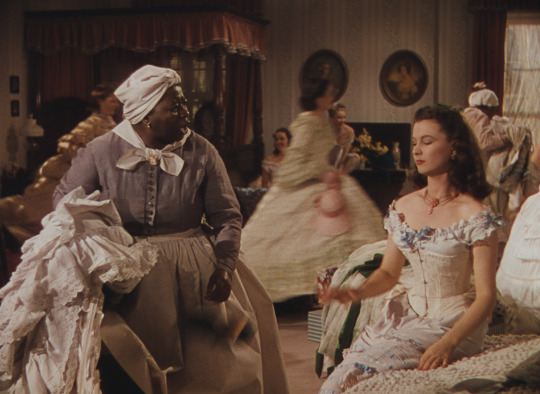
In what ways have we evolved from the movies of the classic era?
KL: I think we are more socially and culturally conscious now when it comes to stories, diversity and representation on screen and behind the scenes, which is a step forward. That said, while there's been growth, there's still much work to be done.
SK: I think this year’s crop of awards contenders show how things have evolved with Da 5 Bloods, Soul, One Night in Miami, Minari, Ma Rainey’s Black Bottom, The United States Vs. Billie Holiday, Judas and the Black Messiah and MLK/FBI.
But we still have a long way to go. I’d love to see more Native American representation in feature films; more Asian-American and Latino stories.
CC: There are minority artists, writers, producers, directors, actors with the increasing capacity to create through their own authentic voice, thereby affecting the world, and a measurable amount of them are women! Generally speaking, filmmakers (usually male) have held the voice of the minority narrative as well as the female narrative. I agree with both writers above in the thought that it is progress, and I also agree, more stories of diversified races are needed.
TB: One important way we've evolved from the movies made in the classic era by being more inclusive in casting.
Are there any deal-breakers for you when watching a movie, regardless of the era, that make it hard to watch?
KL: Physical violence in romantic relationships that's played as comedy is pretty much a dealbreaker for me. I mentioned above that I don't recommend Smarty (1934) to people, because when I finally watched it recently, it. was. tough. The way their abuse was painted as part of their relationship just didn’t sit well with me.
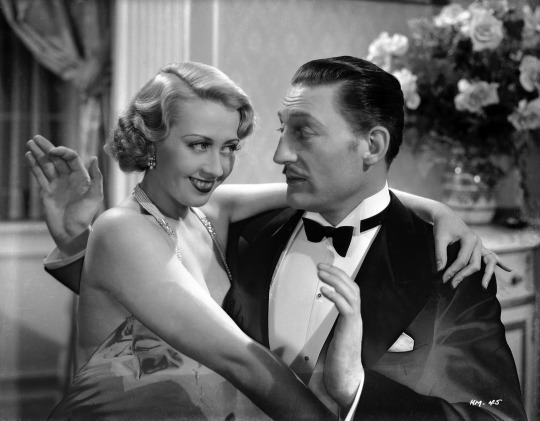
SK: Extreme racist elements and just as KL states physical violence.
Regarding extreme racist elements, D.W. Griffith’s Birth of a Nation (1915) is just too horrific to watch. I was sickened when I saw it when I was in grad school at USC 44 years ago and it’s only gotten worse. And then there’s also Wonder Bar (1934), the pre-code Al Jolson movie that features the Busby Berkeley black minstrel number “Goin’ to Heaven on a Mule.” Disgusting.
I also agree with KL about physical violence in comedies and even dramas. I recently revisited Private Lives (1931) with Norma Shearer and Robert Montgomery based on Noel Coward’s hit play. I have fond memories of seeing Maggie Smith in person in the play when I was 20 in the play and less than fond memories of watching Joan Collins destroying Coward’s bon mots.
But watching the movie again, you realized just how physically violent Amanda and Elyot’s relationship is-they are always talking about committing physical violence-”we were like two violent acids bubbling about in a nasty little matrimonial battle”; “certain women should be struck regularly, like gongs”-or constantly screaming and throwing things.
There is nothing funny or romantic about this.
KL: I try to put Birth of a Nation out of my mind, but S.K. did remind me of it again, and movies featuring extreme racism at their core like that are also dealbreakers; I totally agree with her assessment. I understand the technological achievements, but I think in the long run, especially in how it helped revive the KKK, the social harm that film brought about outdoes its cinematic innovations.
CC: Like S.K., Wonder Bar immediately came to mind. Excessive acts of violence, such as in the film Natural Born Killers (1994). I walked out of the theatre while the film was still playing. I expected violence, but the gratuitousness was just too much for me. I also have an issue with physical abuse, towards women and children. This is not to say I would not feel the same way about a man. However, when males are involved, it tends to be a fight, an exchange of physical energy, generally speaking, when we see physical abuse it is perpetuated towards women and children.
TB: I have a couple of moments that pinch my heart when I watch a movie. It doesn’t mean I won’t watch the movie. It just means I roll my eyes…verrrrry hard.
-Blackface…that’s a little rough; especially when the time period OF the movie is the ‘30s or ‘40s film.
-Not giving the Black actors a real name to be called by in the film (Snowflake…Belvedere…Lightnin’). I mean, can’t they have a regular name like Debbie or Bob?
-When the actor can’t do the simplest of tasks, i.e. Butterfly McQueen answering the phone in Mildred Pierce (1945) and not knowing which end to speak into. What up with that?

Are there elements they got right that we still haven’t caught up to?
KL: I don't know if the pre-Code era got sex right (and sensationalism was definitely something studios were going for) but in some ways, I feel that subject was treated as somewhat more accepted and natural back then. Of course, what was shown onscreen in the classic era was nowhere near the extent it is today, but the way the Production Code put a lid on sex (in addition to many other factors) once again made it into more of a taboo topic than it is or should be.
One thing I particularly hate in modern movies is gratuitous violence, and it perplexes and angers me how America weighs violence vs. sex in general through the modern ratings system: films are more likely to get a pass with violence, mostly landing in PG-13 territory and thus making them more socially acceptable, while sex, something natural, is shunned with strictly R ratings. Obviously, there are limits for both, but I think the general thinking there is backwards today.
CC: The elegance, the sophistication, the precision, the dialogue, the intelligence, the wit. The fashion! The layering of craftsmanship. We aren't fans of these films for fleeting reasons, we are fans because of their timeless qualities.
I'm going to sound like a sentimental sap here, ladies get ready. I think they got the institution of family right. Yes, I do lean towards MGM films, so I am coloring my opinion from that perspective. Even if a person hasn't experienced what would have been considered a "traditional family" there is something to be said about witnessing that example. Perhaps not so much of a father and a mother, but to witness a balanced, functioning, loving relationship. What it "looks like" when a father/mother/brother/sister etc. genuinely loves another family member.
I was part of the latch-key generation, and although my parents remained together, many of my friends' parents were divorced. Most won't admit it, but by the reaction to the documentary [Won't You Be My Neighbor?, 2018], the bulk of them went home, sat in front of the TV and watched Mr. Rogers tell them how special they were because their parents certainly were not. We don't know what can "be" unless we see it.
#Reframed#TCM#Turner Classic Movies#representation#racism#sexism#inclusion#diversity#cinephile#film#old Hollywood#Theresa Brown#Kim Luperi#Susan King#Constance Cherise
110 notes
·
View notes
Text
One Year On: Life is Strange 2 Critique
December 3rd, 2020 marks a year since Life is Strange 2 ended. I was inspired by @smitethepatriarchy‘s text posts (here, but there are several other answered asks worth reading) and @suhaplays’s text post (here) criticizing Life is Strange 2 to write a critique about how Life is Strange 2 handled certain themes and social issues.
(tw: gun violence, police brutality, animal death, incarceration, racism. In this essay, I use the word “queer” in a reclaimed sense, as a queer person myself. Of course, spoiler warning for all five episodes of Life is Strange 1 and 2).
A year on, my feelings about this game have soured... a lot. When the game was first announced, I was overjoyed that our new protagonists would be two Latino boys. Finally, we would have a culturally meaningful, groundbreaking video game with people of color and their experiences at the forefront!
Then the game was met with immediate backlash and I utterly exhausted myself defending it for weeks on Reddit and Tumblr. Throughout 2019, as the episodes came out I became increasingly disillusioned, frustrated, and disappointed with where the story was going. I couldn’t figure out why I felt so damn miserable while playing this game.
Then in the summer of 2020, when Tell Me Why began rolling out pre-release material, I noticed that they posted a Q&A about transphobia, gave content warnings, and discussed at length about their collaboration with GLAAD, Checkpoint, and the Huna Heritage Foundation to make the game with sensitivity and proper research. I cannot speak for trans and gender non-conforming people on whether Dontnod succeeded at doing so with Tell Me Why. But Life is Strange 2 did… none of that.
Essentially, I realized that the reason why I was so frustrated with LiS2 is because it focuses way too heavily on a trauma narrative. This comes off as insensitive to players of color without any content warnings or extensive research.
Sean didn’t have to get kidnapped, kicked in the face, and called a racial slur by a gas station owner. Daniel did not need to watch his puppy get mauled by a mountain lion for the sake of a “difficult choice.” Sean didn’t have to lose his eye for the sake of heightened drama. Sean didn’t need to get called a racial slur and humiliated by his native language/beaten in the desert for refusing to sing. Daniel didn’t need to get shot— twice. Hell, all of “Faith” probably could’ve been cut— how is a church cult that brainwashes Daniel and beats Sean half to death relevant at all to the story?
Even if not all of the game’s violence was racially motivated, the consistent trauma that Sean and Daniel endure does not make for positive representation— or even good characterization. There is a difference between sympathetic characters and well-written characters, and trauma does not make Sean and Daniel any more complex or likable-- just more fucking traumatized.
LiS2 is more grounded in reality, but that also makes plot holes that much harder to excuse (Daniel’s powers being spotted, most of the Parting Ways ending, Sean’s prison sentence). But most of all, it grounds all of Sean and Daniel’s pain and trauma in reality.
There is no magicking away a town-destroying storm with time travel. Sean can’t keep his dad alive by ripping up a Polaroid. After Max unlocked her powers, she was still a Blackwell student, reconnecting with Chloe, taking photos, saving lives, and uncovering a murder mystery. After Daniel unlocked his powers, the Diaz brothers lost everything.
The game never lets you forget that Sean and Daniel are homeless, wanted, constantly in danger, and that they are never getting their old lives back. It permeates the entire game, and for players of color, just reinforces a sad, miserable, grim reality about living in the United States. It is, as @smitethepatriarchy said, potentially triggering for players of color, and it is certainly not something I needed to be reminded of.
And the representation of POC? It feels shallow and ill-researched. It would only take a Google search to find out that Dia de Muertos (a holiday to honor the dead, no less) was from October 31 to November 2 in 2016, the year the game takes place, but Daniel only talks about Halloween in episode 1. Sean and Daniel never discuss any Mexican customs, foods, or holidays. Sean doesn’t speak Spanish with his immigrant father, only during a scene when he’s traumatized (again!) by two racists, and again when talking to Mexican immigrants— in jail. Daniel doesn’t speak Spanish at all. Most of their allies throughout the game are white, including Finn and Cassidy, who appropriate Black culture with their dreadlocks.
So what’s left? Sean and Daniel’s existence as people of color is, at worst, just a narrative prop to justify everything that happens to them. They are people of color on the surface only. In a meta-sense, the game only considers the color of their skin and their last names as what is narratively important… yikes.
I don’t have anything against people who genuinely loved the game and were moved by its messages and story. But I can’t help but feel bitter that white players have the luxury of only thinking of this game as a work of fiction and not feeling any personal reliability to Sean and Daniel’s racialized trauma.
I don’t regret playing LiS2, but I do regret all the time and energy I spent defending it in the beginning. I understand now that I shouldn’t let people’s opinions get to me, nor should I feel obligated to like or defend a game for its attempts at representation. But now, I think I understand how queer fans must have felt in late 2015 when Polarized released. After following the game for 10 months, to see that Chloe’s ultimate destiny was to die and Pricefield is another ship plagued by the Bury Your Gays trope (in the ending that the devs clearly put more work into) must have been just as disillusioning and infuriating. I understand why some fans were so quick to unfollow LiS or develop mixed feelings about the series, because that’s how I feel too after following LiS2’s development from September 2018 to December 2019.
Before I end, I will admit that Life is Strange 2 arrived at a time when I needed it. I still stand by my belief that DN did a great job characterizing Sean, Daniel, and Chris without toxic masculinity, which is the best thing they could’ve done for a male-focused follow-up to a game about queer women. I love that Sean is still a canonically bisexual man of color in a major video game and that DN didn’t forget their queer audience. I love the world and characters that DN built, but I still prefer AU fanfictions of their normal lives, without all that trauma.
So, I will continue to treasure Lyla and her 10 minutes of screentime (aka the only shred of Asian American representation I can get from this series). I still reblog LiS2 fanart to support the artists. I still support Dontnod, because as Tell Me Why has shown, they are capable of researching and writing stories with more sensitivity. And let’s be honest-- I’m still gonna be hella excited if Life is Strange 3 is announced.
But so many aspects of Life is Strange 2 were bungled that it came off as a remarkably average and forgettable experience. A year on, I don’t hate Life is Strange 2, but I am writing this to move on from it.
Thank you for reading.
#life is strange 2#life is strange#lis#lis2#lis 2#lis2 critique#pricefield#racism#sean diaz#daniel diaz#diaz brothers#sinn#fean#finn#lis finn#finn mcnamara#chloe price#max caulfield#lyla park#lis sean#lis2 finn#lis2 sean#lylapark#lis2 daniel#lis daniel#dontnod#dontnod entertainment#square enix#bury your gays#trauma
169 notes
·
View notes
Text
Character Design of Latinos
by a Latina who is tired of y'all not doing your research.
—————
First of all, please keep in mind that I don't speak for anyone but myself. You should never stop at just one source of information, and I would honestly really advise you to listen to other Latinos —especially other Latinos of color— to hear their thoughts and perspectives as well. And second, please remember that Latino is not a race! I can't believe I even have to say this, but the term refers to anyone who is from Latin American or who has Latin American heritage or descent and should never be referenced as a race. Alright, now that that's out of the way, let's dive right into it!
—————
People don't seem to realize that Latinos can come in all shapes, colors and sizes. People like Sofia Vergara and Michael Peña shouldn't be your only source of reference when trying to figure out what you want your character to look like. As I mentioned here, Latinos are diverse not just in our cultures but also in our appearances and, contrary to popular belief, we're not a monolith of people that all look alike. Latin Americans, just like every other ethnic group, have an incredible amount of genetic diversity.
Don't believe me? Just look at all these people:
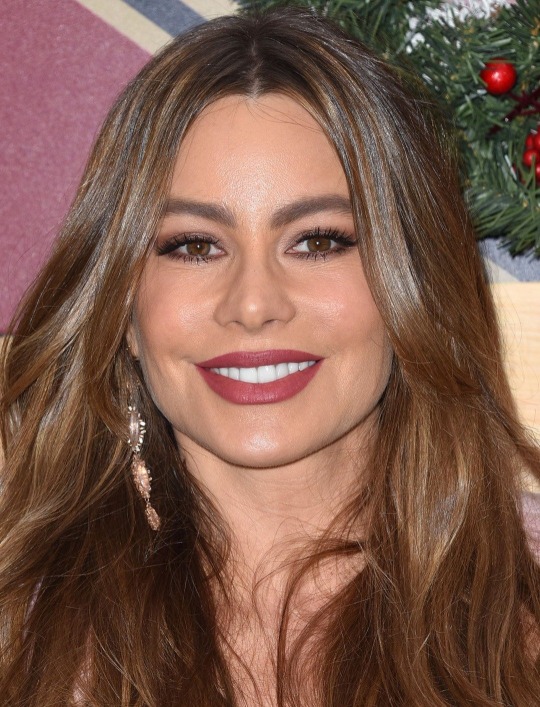
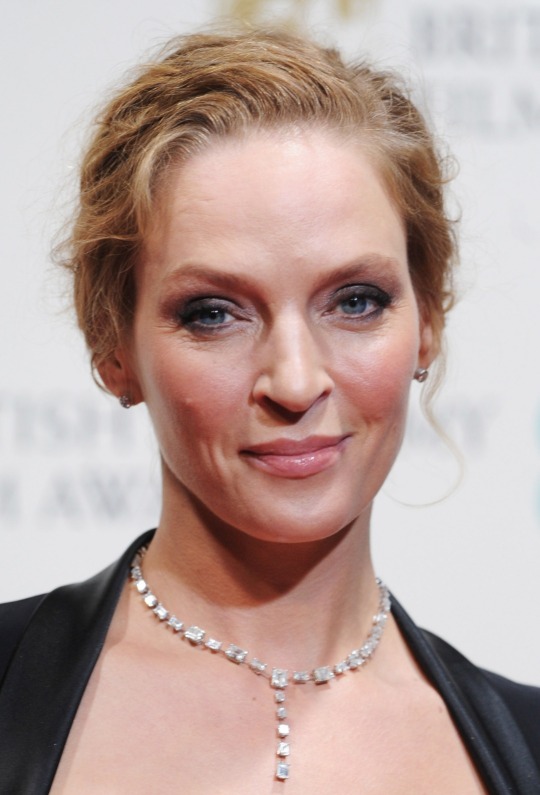
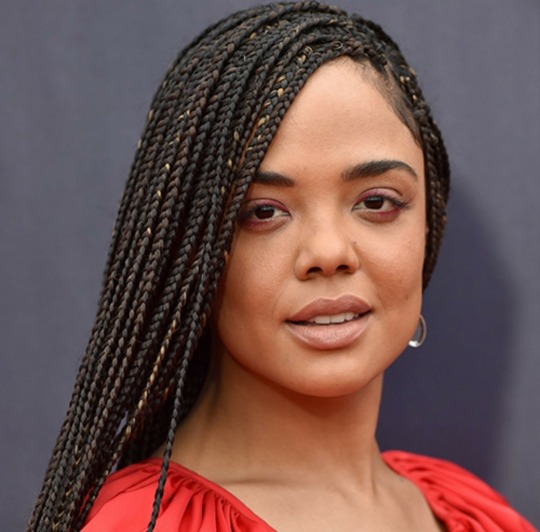
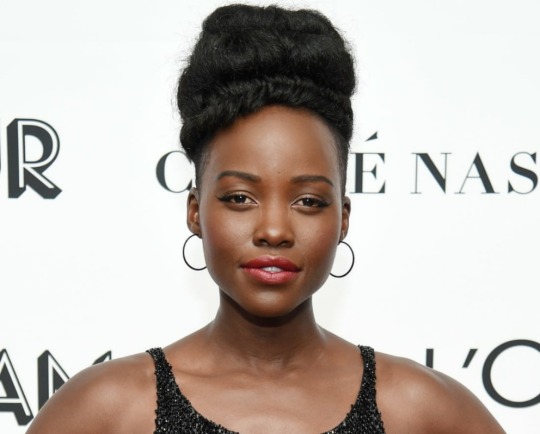
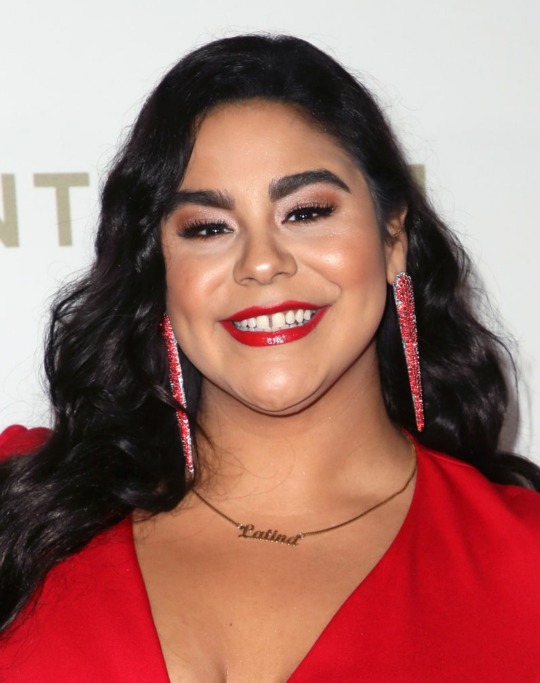
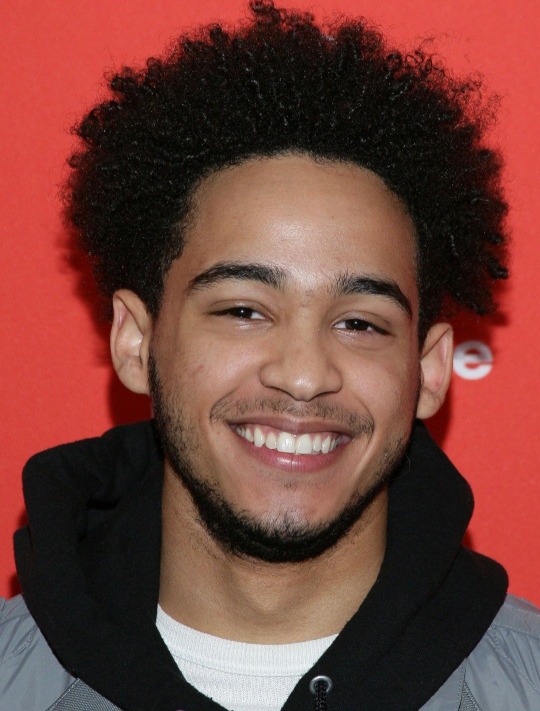
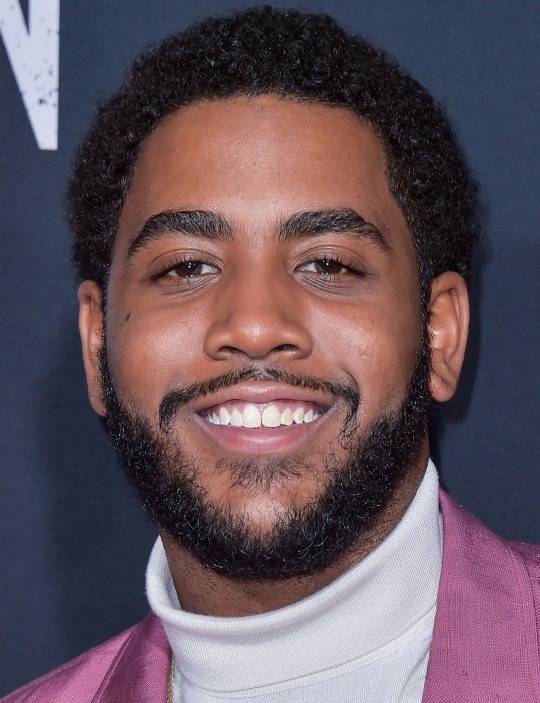
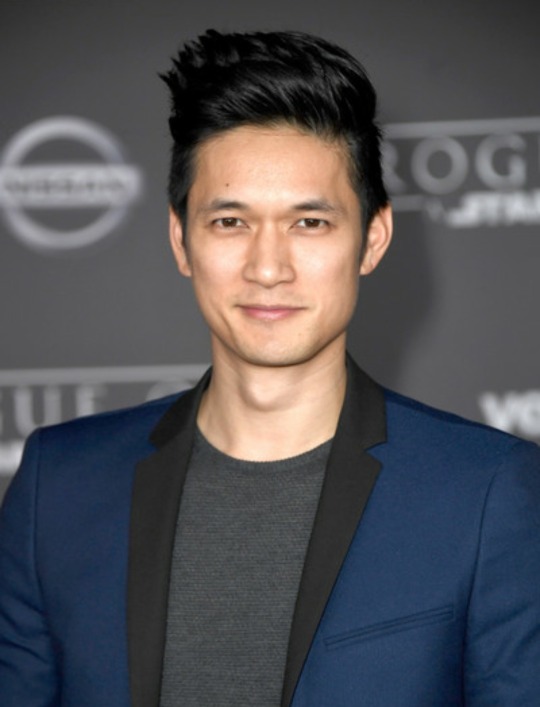
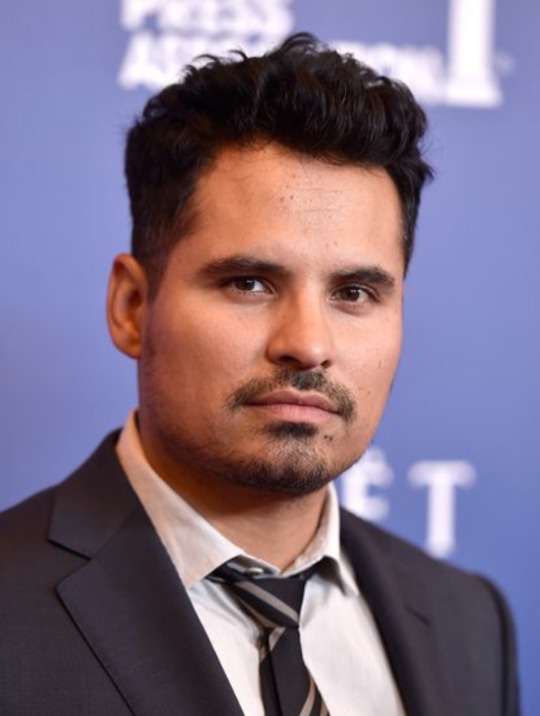
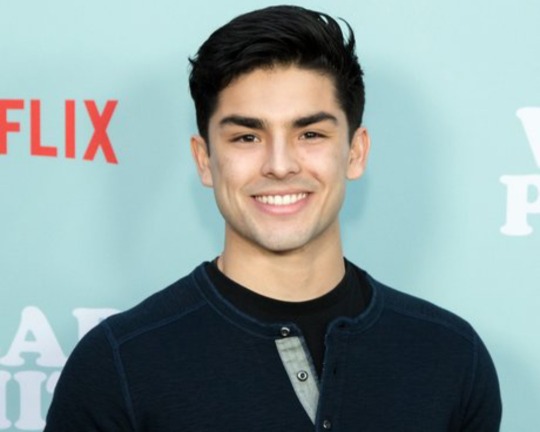
Now, what do they have in common? They're all Latinos. See how they all have different skin tones, facial structures, hair textures and body types? Yeah, they don't look the same to me.
A character's design can reflect their personality and give the audience a good idea of who they are as people. And just as whatever languages a Latino does or doesn't know shouldn't invalidate their identity, neither should their appearance.
The thing about character design when it comes to marginalized groups is that it goes hand-in-hand with all the stereotypes that are constantly perpetuated.
Why are Afro-Latinos only portrayed as maids, nannies or drug dealers? Why are the Latinos that look like Michael Peña portrayed as violent or lazy? Why are they always the comedic relief, immigrants or people with a lower-class status? Why are the Latinas that look like Sofia Vergara and JLo portrayed as spicy and exotic mistresses? I mean, we obviously know why, but I'm just saying, if that's what you think all Latinos are like then you are in desperate need of a wake up call.
There's this huge misunderstanding of the Latino identity. The misconception that we all have the same tanned skin tone, the same facial structures, body types, hair textures, personalities, etc. when that's...really not the case. Society has taught a lot of people that if our appearances don't fit in with this unrealistic ideal they have of us, our identities are therefore invalidated. And this misconception causes Black, Indigenous and Mixed Latinos to be underrepresented or entirely dismissed in media and society in general more often than not.
I want to add that while white Latinos' identities do get invalidated from time to time as well —I say this because one of my best friends is a white Latino but since he's, well, white, some people don't seem to believe him and just seem to think that he's joking—, it's not nearly to the same extent as the types of Latinos that I mentioned beforehand do. White Latinos still hold a lot of privilege in society despite this.
Also just an important note that you should keep in mind and take into consideration: just because a Latino is white doesn't mean that they don't or can't have features that are more frequently associated with their ethnicity.
It's alright to portray light-skinned Latinos. Like I said, we're very diverse. But you have to question your reason for making the character have that skin color. Remember, you are the creator. You're the one in control of all these decisions and if all of your characters are portrayed as light-skinned people then you really have to take a step back and reevaluate your decisions because that right there sounds a lot like colorism.
When you say you want more Latino representation, you should be referring to all kinds of Latinos. You shouldn't just mean the ones that you and the rest of society consider acceptable. And no, it's not exactly your responsibility to create diverse characters, but if you're preaching about diversity and sitting on your high horse then I sure do hope that you're willing to actually do something about it. Performative activism is harmful and, at the end of the day, does absolutely nothing if you're not willing to put the work into it.
Additionally, don't be afraid of implementing aspects of their culture into their design. Let them be proud of their culture, let them engage in it. However! Please don't take this as an excuse to center their entire personality around their culture. You may think you're doing something when, really, you aren't. You're just feeding into all the harmful stereotypes and not making any actual effort to add real depth to your character (looking at all the people that make celebrating Día de los Muertos, eating tacos, and liking "Gasolina" and "Despacito" their character's only defining personality traits).
Personally, I would love to see more of the following:
• A thin-lipped and curly-haired Latina.
• A Latino with freckles. This one may seem strange but most of the time I just see Latinos with moles, not that there's anything wrong with that (I have a lot of them myself), but it'd be nice to see some variation.
• For a Latina to be considered beautiful without being fetishized and objectified.
• A Latino who doesn't fit the "sexy macho" stereotype to be considered desirable.
• More LGBTQ+ Latinos, especially ones who are POC.
• Black, Indigenous, Asian and Mixed Latinos.
• Disabled Latinos.
• Jewish Latinos.
• Muslim Latinos.
• Latinos with different body types.
• Soft-spoken Latinos.
• Successful Latinos who are well-off.
• Latinos who are allowed to be emotionally vulnerable.
• Latinos with complex storylines and realistic flaws.
• Latinos at the center of the story instead of just existing in the background for the sake of "diversity".
• Just more positive and diverse representation overall.
There's not enough positive portrayals out there of us, and it's exhausting having to sit back and watch as my people get portrayed so negatively. Am I saying that there's no good representation out there for us? No, there absolutely is good representation (ex. In The Heights, On My Block, One Day at a Time, Coco, Miles Morales, Luz Noceda from The Owl House, the Molina family from Julie and the Phantoms, etc.), but that doesn't take away from the fact that a lot of the representation that we have throughout all types of media is, for a lack of better word, bad.
And you can't just say, "Oh, but at least you have representation, can't you be at least a little grateful? Why are you complaining so much?" because you don't get to decide what people are and aren't allowed to be upset about. Despite the positive representation that exists out there, it tends to be overshadowed seeing as a lot of people still view us through this negative lense that they've consistently been told to believe is true when it's really not.
All types of Latinos deserve to be represented in a positive light. So make sure the character you're portraying feels like an actual person as opposed to an offensive one-dimensional caricature because sometimes having bad representation is worse than having no representation at all.
#other latinos are free to add additional info btw!#i'm always a little hesitant to post these types of things but i really do feel like they're things that need to be said#anyway remember to drink your respect latinos juice please and thank you😌🔪💕#luna talks#latino#latine#latino representation#long post#diversity#character advice#writing advice#writing tips#important#also there's a reason as to why i don't personally use the term latinx but that's a topic for another day#i hope this ends up being helpful for some people and that i worded it all correctly lol#writing resources
166 notes
·
View notes
Text
Okay I usually don't get involved and just flow with the support and everything but I think it's important to some enlightenment so well let's add something to this whitewashing matter.
For those who are not into the art or entertainment, I'm going to explain something real fast.
When you're "selling" ideas to producers, you need this "speech" where you're going to explain as fast as possible what's new and amazing of your project.
In this speech they ask you about your targets and future plans, so you must at least have most of it figured out.
It's very very obvious that the bad batch is something that Filonni dude had in mind very long ago.
How can you tell? Well first of all, this is not a children's product, it's not something you can easy pull into Disney. Second, the plot is wierd, there is a lot of plot holes in it and it feels like it's been done in a rush.
This leads me to think that even if the bad batch has been in his mind or plans for some time, it's not something well planned. And this ends in a pile of many many mistake adding of course the whitewashing matter.
Why? Because it's lazy, it's lazy design and you can see it in day light.
I'm not dropping your argument about the Tem's sister reference but c'mon, they are not that kind, I'm sorry.
Omega as we recently saw it's the opposite and the final aspect about clones. Boba is Alpha so if you want something opposite to Alpha who has dark skin and dark hair what you got? See! Lazy as fuck design.
Oh and this is not an excuse to his mistake, I'm just pointing with my fingers the harm what they laziness can do.
Because if they weren't this lazy, they will realize the problematic design they had, if they weren't this lazy, they will realize that they had a minimum representations of WOMEN of color.
If they weren't this lazy, more people will be engaged with they products but no they choose to be this lazy, because they so things form privilege.
I don't care how much they know about Maori culture because I already know they are lazy. Even if they had some intention to make tributes and positive references they are still lazy because even George Lucas itself use Temuera as a villan.
Even if the mandalorian use a latino man, yes he is not as brown as indigenous people, South America is full of white people because a lot of french, polish, Germans and Italians ended up there even if Rogue One used a mexican guy, he is not as brown as the most mexicans.
And yes, a lot of places with colonization history are mixed but using that as an excuse to intentionally picking the whitest of us is lazy and racist as F.
Because we are brown, not white, not black, brown.
And yes, the bad batch is a whitewash product and that's racist.
#Im sorry for the little rant#I usually agree with the most#because you're very smart and can tell this racist thing#but some of you pls just chill a bit#no need to white savior
13 notes
·
View notes
Text
Basic Reproduction, Pregnancy, and Childbirth info for fanfic writers
As a mom myself as well as a future midwifery student, one thing that can really get me out of the escapism of fanfiction is the inaccurate or awkward depiction of pregnancy and childbirth. Whether because it is overly simplistic, written traumatically, or shares misguided ideas surrounding fertility and childbearing, it just really has me not enjoying the content despite it being a good story otherwise. The downside of being well-versed on a certain topic is that you become quite good at seeing misconceptions about it in fiction!
And especially since so many fanfic writers are either too young to be parents or are childless, I felt: hey, why not help out a lil bit? I love your stories and growth as a writer, so I think it’s only fair that I can contribute in some way. It’s not so much a how-to guide, mostly just basic resources to study from or refer to, but I do have a small commentary here and there.
I tried to make the list as encompassing as possible, to include resources that could help with fantasy, sci-fi settings, as well as ideas for non-human characters. So this list is for more than just typical human stuff!
You can read more below the cut:
Fertility Awareness, Health, and Birth Control:
This part is important to fully understand how and why a pregnancy can occur. Contrary to what a lot of people learn, you actually CAN’T get pregnant on any day of the menstrual cycle -- and birth control can fail in various ways even when used correctly. I figured this would help writers better describe how a character falls pregnant by way of BC failure, and not keep it so vague and mysterious. And hey, if that means free sex ed for teen and adult writers, then more power to them. :)
fertilityfriday.com
larabriden.com
avivaromm.com
factsaboutfertility.org
bedsider.org
Pregnancy:
Pregnancy can vary wildly in experiences, so I tried to include mostly resources for pregnant parents that take this into consideration. You can also find info on pregnancy stuff in resources listed in the childbirth list!
babycenter.org (they also have info on raising kids up to five years of age!)
americanpregnancy.org
womenshealth.gov
Childbirth:
My favorite part! Here you will find lots of birth stories -- all quite varied -- and will give insight into how birth can play out. The resources above also discuss childbirth.
midwiferytoday.com
birthwithoutfearblog.com
spinningbabies.org (they have a blog you can read from)
evidencebasedbirth.com
A really neat article about a really neat midwife! https://www.healthline.com/health/betty-ann-daviss-midwife-breech-births
You can also search for birth videos on youtube. Just be careful -- they are often “graphic” in that they don’t blur out genitalia or blood (both of which is normal in birth btw, but it may come as a shock to some out there) and I found a few (not many, but enough) birth videos where women were verbally harassed by care providers. Just sharing this so that you can decide for yourself if it’s worth searching.
Postpartum (post-birth recovery):
Most of the pregnancy and birth info I post above will comment on postpartum recovery and traditions. However, here are more specific resources that can be useful for writers.
slowpostpartum.com
postpartum.net
postpartumresourcegroup.net
article comparing postpartum recovery traditions around the world: https://www.scarymommy.com/postpartum-care-is-better-other-countries/
LGBT representation:
I know a lot of fanfic writers use their craft to share their desire for positive LGBT stories. If this is your thing, here are some parenting and pregnancy resources that real LGBT people use when growing a family; it will help keep the realism respectful and accurate when writing for your LGBT character(s).
La Leche League on chestfeeding/breastfeeding for LGBT parents: https://www.laleche.org.uk/support-transgender-non-binary-parents/
You can follow the Queer Doula on facebook for ideas and information on LGBT birth as well, they are Non-Binary: https://www.facebook.com/TheQueerDoula/
Badassmotherbirther and The Warrior Within Birth Services also occasionally share LGBT posts and encouragement (also on facebook)
POC-specific resources for cultural sensitivity:
I hate lumping all non-white cultures into one “POC” grouping, but I felt this would be the easiest way to keep the list organized. I included organizations run by and for Indigenous and Black women, since they face the most discrimination in the birthing world. I was going to link resources for Latino families as well but I couldn’t find any, sorry. :(
Indigenous Breastfeeding Counselor: https://www.facebook.com/IndigenousBreastfeedingCounselor
Indigenous Birth Workers Network: https://www.wisewomengp.org
Wuttahminneoh Birth Work (I am so sorry for the funky link facebook will literally not give me another URL): https://www.facebook.com/heartberry.bw/?__xts__[0]=68.ARAsiZyY90fZivjKJkF0MtcjMTiRhOHOT0Q-QiJe3FTwFJfBpKtNDMsQQLog8A2Uv0VC7ki5CRKR9Oi8RNuR2RHAHVmAm3aHQxTmuo5tvpFu4i7lZfMlnFmo8LTVc8-Qfd6wnA1itDCh4o4qtc45MUJI9NZh4lvVBXhLbnMGck6AiDUzFjrIyDikppt4lnX1jjFzkx-g5QCapbeX3BqpuWWvtHpw35L7QzbmOoyW-1iFi4S2s997u795VFAKLVEkqWTFyzmZhJdZbGd3gzt2lzJ-jB1crYe-y-eaLrbnBYmfar8UYToVNu-hOCVojr3pnLfaZn-tIwxwiXyBXz-jnwkCt52mrKaVagcK6l6GkzE91pN8GncBkQ
A Story of Indigenous Birth Justice: http://micemagazine.ca/issue-two/story-indigenous-birth-justice
National Black Midwives Alliance: https://blackmidwivesalliance.org
Black Women Do Breastfeed: https://blackwomendobreastfeed.org
Different types of reproduction in the animal and plant kingdoms:
I’m not much an expert in this area, though I do find it fascinating. If you would like to use ideas from nature for head canons about non-human races, then go nuts -- the natural world is full of inspiration!
Plant-based biology:
https://byjus.com/biology/plant-kingdom-plantae/
https://www.britannica.com/science/plant-reproductive-system
Animal-based biology:
https://www.britannica.com/science/animal-reproductive-system/Sponges-coelenterates-flatworms-and-aschelminths
https://byjus.com/biology/animal-kingdom/
Asexual vs Sexual Reproduction:
https://biologywise.com/asexual-vs-sexual-reproduction
And youtube has a lot of documentary videos of animals giving birth if you want to check it out.
A note on traumatic/dramatic birth scenes:
I, personally, have a special request:
PLEASE stop writing traumatic birth scenes.
No death of the mother or the baby. No focus on out of control pain or death by infection or “““blood loss”““. No birthing during a battle or other climatic event.
In the United States and other parts of the world, millions of women struggle with PTSD or postpartum mood disorders due to mistreatment and trauma experienced at birth, and many more are simply surrounded by negative depictions of birth in mainstream media.
Women are told, every day through common media tropes, that birth is scary and anything can go wrong and that they have no choice in how birth may or may not turn out. While it is true that something may require medical attention, most pregnancies are low risk, and many complications at birth or after birth occur because of medical negligence or lack of informed consent. But this mistreatment and negligence is often put into the spotlight as a way to sanctify care providers and scaremonger women about their bodies.
If you would like to do a small part in normalizing fertility, pregnancy, and birth, then I humbly request that you do so by keeping birth simple and refreshingly non-traumatic. If you absolutely MUST have a dramatic birth scene, at least keep it accurate to what can actually happen, and warn your readers ahead of time on where to skip the scene. An author did that for a trauamtic birth in a fic I read, and it was a lifesaver for me. I did not have to re-live my own trauma from my first birth, and instead was able to focus on the story outside of it.
Otherwise, I would much prefer to read a silly, happy, or even just plain old NORMAL birth scene myself. I never see this. Often the birth scene is either traumatic/dramatic as an excuse to hurt or kill off a character, or it is comedic to make fun of natural birth. For once, I would adore to see a birth just as it is: a powerful moment where a mother (and father or other parent) meets her child, whether naturally without medical intervention or during a healing, family-centered c-section. When it comes to positive and accurate representation, birth is sorely in need of it! If you have a hard time of knowing where to start, just read the many positive birth stories out there -- they are great for inspiration and encouragement.
Thank y’all for reading, it means a lot. :)
**NOTE** I may expand this list in the future. If you would like to add anything here, please let me know.
36 notes
·
View notes
Text
Kids’ WB! and Diversity
“It’s so great to see a black superhero.”
This is a direct quote from one of my middle school classmates regarding Static Shock. Even as an eleven-year old girl, I realized the significance of that statement. In a world full of Supermen, Batmen, and Iron men, to have a hero like Static who looked like us and wasn’t a jive talking best friend or an aggressive criminal or a lazy bum was uplifting. Over fifteen years later, seeing diversity within cartoons wax and wane throughout the years has led me to revisiting Static Shock and the cartoon block it was on, Kids’ WB! In its 13-year history, WB has had several cartoons that are diverse in both their characters and their stories. I will go over the ones I’ve seen briefly, then discuss why the shows (mostly) were positive representations of diversity.
Waynehead (1996)
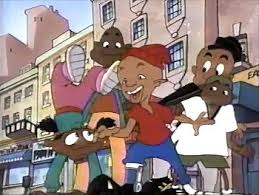
Waynehead was a 13-episode series that centered around Damey Wayans and his friends as they experienced life in their inner-city poor neighborhood. The series was created by Damon Wayans and based off of his own childhood (hence the name of the protagonist). Although the show never had a home release, reruns ran on Cartoon Network in the early 2000s.
Jackie Chan Adventures (2000)
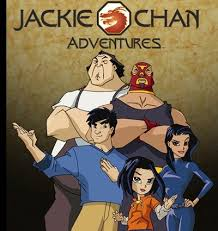
Created by John Rogers and produced by Jackie Chan, Jackie Chan Adventures stars a fictional Jackie Chan who, in his job as an archaeologist, uncovers magical artifacts that make him a target for different natural and supernatural enemies. Luckily, he has the help of his mischievous niece Jade, his magic-using Uncle, and Uncle’s apprentice and reformed villain Tohru, as well as his own martial arts skills. The series was able to last five seasons before ending in 2005.
Static Shock (2000)
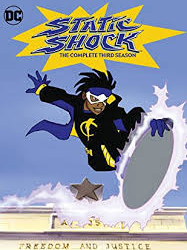
Static Shock was created by Dwayne McDuffie and based off of his Milestone Comics series Static. The cartoon follows Virgil Hawkins, a teen who gets caught in the middle of a gang war when chemicals in a nearby building cover all of the participants, given them unique powers. Virgil gains the power to control electricity and, as the superhero Static, protects Dakota City from other empowered individuals like himself. Static Shock ended in 2004 after four seasons.
¡Mucha Lucha! (2002)
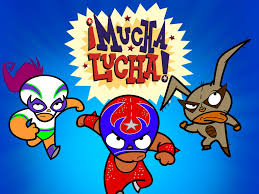
¡Mucha Lucha!, roughly “a lot of fighting” in Spanish, was about life in Luchaville, a city were everyone was a Lucha Libre- style wrestler. The series follows main character Rikochet and his best friends Buena Girl and The Flea as they go to school to learn how to be the best luchador they can be, while using and developing body-morphing signature moves along the way. ¡Mucha Lucha! was created by Eddie Mort and Lili Chin and lasted for three seasons with a direct-to-video movie, concluding in 2005.
Xiaolin Showdown (2003)
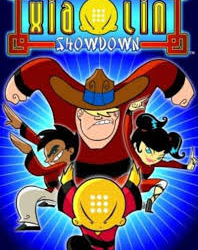
Created by Christy Hui, Xiaolin Showdown was about four children from different parts of the world training to become Xiaolin warriors that protected objects of power called Shen Gong Wu from various enemies. The children were Omi, the arrogant Dragon of Water from China, Raimundo, the laid-back Dragon of Wind from Brazil, Kimiko the tech-savvy Dragon of Fire from Japan, and Clay, the calm Dragon of Earth from the United States. Using different Shen Gong Wu and their own elements, the Xiaolin apprentices challenge their enemies to contests called Xiaolin Showdowns for control of the Shen Gong Wu, developing their skills and personalities as the series goes on. Xiaolin Showdown ended in 2006 after three seasons, although a spinoff named Xiaolin Chronicles that lasted another two seasons ran from 2013 to 2015 on Disney XD and Netflix.
Analysis
These five shows boasted widely diverse casts, but many shows during this time did. What makes these shows different, however, is that people of color were either the protagonists or the main focus of these shows. Other shows with diverse casts still usually had the male white lead who was the most developed character. So what are the benefits and drawbacks that come from having a mainly minority cast?
Positives
One of the biggest positives that comes from a POC-led cast is the variety of personalities. In white-led diverse casts, minority characters are often given one personality trait that they never deviate from. This is especially true if the trait is a common stereotype for the minority: Asian nerd, Black athlete, etc... In shows that multiple minority characters, each of them are given widely different personalities such that a stereotype is rarely establish about a particular minority in that particular show. Jackie Chan Adventures, for example, has Asian characters that range from smart, kooky, annoying, strong, evil, and more. Static Shock have African Americans that are outstanding citizens, criminals, and everything in between. This shows illustrated how varied POC are in real life.
Beyond a multitude of personalities is genuine character development. Throughout these series, POC characters who would often be reduced to static characters were allowed to grow and change throughout the series. In Xiaolin Showdown, Omi was humbled many times throughout the show, while Raimundo went from laid back but rash to a smarter and nobler warrior. Jackie and Jade’s relationship in Jackie Chan Adventures actually evolved throughout the course of the series. In these shows and more, the creators were not afraid to show their characters as imperfect-- this in turn leads to greater character development.
Given that the casts were mainly POC, these series often discussed topics that affected those communities. Both Waynehead and Static Shock discussed living in the inner city, homelessness, poverty, and violence, with the latter also discussing racism and black identity. Jackie Chan Adventures used both Chinese mythology and literature as inspiration for its stories as did Xiaolin Showdown to a lesser extent. Finally, ¡Mucha Lucha! is a celebration of the Mexican lucha libre tradition. Not only are the characters valued in these series, but so are their cultures as well.
Finally, seeing a POC as the main character at a time where most main characters were white was empowering for young POC like myself at the time. We got to see ourselves as heroes, martial artists, warriors, and more.
Negatives
Because the main focus of these series are POCs and their stories, many people may perceive elements of these shows stereotypical, from the strong Hispanic accents in ¡Mucha Lucha! to the exaggerated features of the characters in Waynehead to gang violence in Static Shock. Stereotypes in of themselves, however, are not bad-- reducing especially minorities characters to those stereotypes is. None of these series do that; all of the characters and situations are well developed in spite of the risk of stereotypes. It helps that most of these series were created and/or produced by people of the same ethnicity as the characters, which led to a more nuance portrayal of stereotypical issues rather than an exaggerated portrayal of them.
Caveats
Of course, there are many white-led cartoons that had well-developed POCs, including both X-Men and X-Men Evolution, Codename: Kids Next Door, As Told by Ginger, Gargoyles (although that was more creature-led) and many more. Minority characters were often just treated like another character rather than significant because of their minority, so they were just as developed as their white counterparts.
Furthermore, Kids’ WB! was not the only company that had cartoons led by diverse characters. From Nickelodeon’s Hawaiian-led Rocket Power, to Disney’s Black-led The Proud Family and Asian-led American Dragon Jake Long, to Cartoon Network’s Asian-led The Life and Times of Juniper Lee, many companies were creating cartoons that celebrated a variety of different backgrounds. What makes Kids’ WB! stand out is that it was a basic channel that everyone could watch rather than a cable channel that many could not pay for. Kids’ WB! also had relatively more diverse series than its basic channel contemporaries like One Saturday Morning or Fox Box/4Kids TV. However, although ethnically diverse, Kids’ WB! was not diverse in other ways.
All of the shows I discussed in this essay have male leads. Even though several of them have well-rounded female characters like Jade in Jackie Chan Adventures and Buena Girl in ¡Mucha Lucha!, Kids’ WB! have only a handful of shows that starred females, which were either cancelled early, borrowed from Cartoon Network, or, in the case of Cardcaptors, edited to give more attention to male characters. The studio wanted to attract more boy viewers rather than girl viewers to sell toys; ironically, this is the same excuse that many studios use for not focusing on ethnic characters-- that white children will not resonate with them.
Another diversity issue is the lack openly queer or genderqueer characters. Now, this is more of a industry-wide problem than just a Kids’ WB! problem. Even today, when we’re getting more queer representation in children’s programming like Steven Universe, Adventure Time, She-Ra and the Princesses of Power, The Legend of Korra, and even Arthur, there is still a lot of pushback from “moral” guardians about this type of inclusiveness. Kids’ WB!, however, has a specific example of this. Ritchie Foley, Virgil’s best friend in Static Shock, is a reimagining of Rick Stone from the Static comics. Rick is gay in the comics, and McDuffie revealed after the show was over that Ritchie was too, which would have been an uphill battle now let along in the early 2000s.
Conclusion
Rightfully, more people are demanding more diversity in their media. People want to see shows and movies that are led by ethnic, religious, gender, sexual, and other minorities because that reflects the world they live in. It reflects them as people. Two decades later, it is amazing how Kids’ WB! had ethnically-diverse series that portrayed Black and Asian and Latinos as both heroic and flawed, noble and cruel, intelligent and foolish, and everything in between. Rather than having one minority character to fill a quota, Kids WB! had a multitude of minority characters that accurately illustrate how varied and complex real-life ethnic minorities are.
#kids wb#kids' wb#kids wb!#kids' wb!#waynehead#jackie chan adventures#Static Shock#muhca lucha#xiaolin showdown#diversity#race#ethnicity#ethnic#black#black people#asian#latino#hispanic#mexican#chinese#African American
93 notes
·
View notes
Text
I’m not rlly sure how to articulate this so...forgive me but...as a middle eastern girl growing up I’ve NEVER seen positive representation of myself in movies or tv. One of the only things I ever had to look up to was princess Jasmine in Aladdin. My dad used to read me a copy of 1001 arabian nights as a kid, translating it from farsi to english for me. Now, as I see so many people excited for the release of the new Aladdin movie in live action I’ve just become very disheartened with the entire social justice movement as a whole. Seeing my friends, especially OTHER POC calling for people of the wrong race to be cast in the movie is what truly disgusts me the most. I’ve seen countless fan casts of Aladdin as Riz Ahmed, Dev Patel, Avan Jogia, Zayn Malik and other south asian celebs. As well as MANY tweets and articles about how it should be easy to fly into bollywood and pick the perfect actor. But when I saw ONE post with rami malek in it, people instantly shut it down. I’ve also seen countless posts with Priyanka Chopra and random black IG models saying thay’d be “perfect” for Jasmine. But when one person on instagram posted that Jade Thirlwall would be a good Jasmine, all the comments were saying she’d be terrible and even that she’s not the right race? Also, I’m not trying to say Rami or Jade would be right for the roles, because assuming any actor of the right ethnicity would be perfect is a whole other can of worms.
The few posts I’ve seen calling this out and asking for middle eastern actors to be cast people said “who cares at least they look the part” or “at least its better than whitewashing” as if we’re supposed to be happy with other (better represented) ethnic groups stealing our ONE role just because they’re brown too? I’d like you to name all the black, latino, east asian, or even south asian actors you know. Or maybe name a movie about these cultures that framed the culture in a positive light. Now name a single middle eastern actor. Now name a movie about the middle east, or starring middle eastern people that framed us in a positive light. We have ZERO representation in Hollywood. And now the one story we have that is rooted in ancient middle eastern lore and culture, we should be grateful we’re having our stories stolen from us, just because the thieves are POC too? I’ve completely lost all faith in poc solidarity, especially between south asians and middle eastern people.
I’ve also seen the excuse ”the original aladdin was set in China.” yes, I’m sure wikipedia is very knowledgeable but actually a WHITE FRENCH person wrote the version set in china, the original is actually a syrian story that he took and compiled with the rest of the original 1001 nights, changing the setting from the middle east to china.
I’ve also seen excuses that the original movie drew very heavily from indian influence, and that’s why its okay for indian actors to be cast. This argument is even more disappointing to me. Agrabah was not, in fact, based on Agra, but rather Baghdad. The sultan’s palace does look like the Taj Mahal, but it also looks like ANY mosque in the world, especially if you simply google “iraq mosque”. Anyways, Disney animators acting as though the cultures are interchangeable and mixing them together doesn’t excuse people of different ethnicities trying to co-opt this middle eastern story, and with Disney putting out a casting call specifying that both Aladdin and Jasmine should be middle eastern, its shameful to me that other POC are trying to defend miscasting that hasn’t even happened yet. DIsney is hopefully trying to fix what they did in the original movie, by separating the indian cultural influences from true source material, and people are somehow mad about this?? Just weird to me that people are somehow MAD that we’re trying to say not all brown cultures are interchangeable and related to each other. And veeery interesting how willing people are to try and snatch roles that truly belong to middle eastern people away from them. The worst part is that it’s not even white people doing this lmao
#personal#just some jumbled thoughts#please excuse intelligibility im just tired#aladdin#middle eastern probs
335 notes
·
View notes
Text
on “all taakos are good taakos”
there's a lot to say about this comic (where taako magically changes his appearance every morning, which includes changing his race), and before you read this, read these posts by actual people of color.
this is about how ambiguous “representation” isn’t effective and is honestly what you need to read rather than this post.
these two address why taako honestly has to be mexican.
this about why green taakos aren’t good.
this is about why that comic is bad.
i also want to preface this by saying that i'm white, and that with this post i'm speaking to other white people in the taz fandom, especially those that consumed that comic wholly uncritically. i'm not saying anything novel or remarkable, and as such i really don’t need to be lauded for this post, since it was made possible by listening to people of color who obviously have the best perspective on this kind of stuff.
i'm honestly not the person you should be listening to, but hopefully you'll listen to me.
fandom is so uncritical of this comic, because it's easy. it's easy to talk like that because it avoids all the difficult realities of race. look! taako can be everything all at once! now we never have to argue :))) and anyone who DOES argue (aka, say anything to disrupt the fantasy that taz and taz fandom are perfect) is a "discourse attention whore." (those are all tags from the SIX THOUSAND notes that comic has at time of writing)
and like... as a white person, i know i have to try my best every day, because the mental difficulty of wading through the racism ingrained in me is paltry compared to the actual reality of being a person of color in our society. that's non-negotiable. i - and other white people - don't have to deal with anything, comparatively.
and to blame every instance of people of color in this fandom - in every fandom - being uncomfortable and rightfully frustrated with the massive amount of white designs, the elevation of those white designs, the token lip service very occasionally paid to nonwhite (and no, i don't mean GREEN) taakos by the vast majority of fandom, and then people of color talking about these issues and those posts being spread because those voices deserve to be elevated listened to -
to blame that on... "discourse" is awful. calling it "discourse" is saying people are talking about insidious racism just because they want a fight, not because it actually matters to them.
and look. as i said, i'm white. i also went through the stage where i thought it was productive to say "all designs are good and valid and perfect uwu artistic freedom!!!!," but that was because it was easy, and made ME feel good. and certainly, that phrase can be used to validate taakos that are latinx, that are black, that are asian, that are hugely underrepresented designs in fandom that the podcast medium lets one have the freedom to create.
but when that is used to sweep away concerns over the MOUNTAINS of attention white taakos are given - look at the zine, carey pietsch's much-lauded and infectious designs, the thousands of notes on white (and green) taakos - it's counterproductive. it doesn't do anything.
sure. in a vacuum, a white, blond taako is as good a design as a latino taako. you can even try to say that the universe taz takes place in has no problems with our definitions of race, the true liberal fantasy.
but we don't exist in a vacuum. fandom doesn't exist in a vacuum. being white gives the privilege of pretending that we do, but... it isn't.
why are people inclined to draw taako blond and white (as well as skinny)? especially when taako is literally said to invent tacos.
why is that the default we repeatedly see, that we white people repeatedly create, over and over, with ambiguous-appearance beloved characters - cecil, wheatley, etc?
why do those designs receive so much attention (and don't pretend they don't, because they do)?
why do people so fiercely defend adding to that mountain?
listen and change. none of us are infallible - not me, not you, not the mcelroys. we are subconsciously inclined to be defensive of this power structure that we benefit from. not being a member of the kkk doesn’t excuse us from anything, even stuff that was well-intentioned, like that comic. we have to consciously strive to be better in every situation, to affect positive change, because again - that is nothing compared to the reality of being a person of color.
it is more constructive to draw taako as a person of color. and as a white person, it is honestly the least i - and you - can do. the ambiguity of "all taakos matter :)))" is appealing because it is so feel good, but it does nothing besides wipe away fans' criticisms.
actually having people of color be seen and celebrated in media (which includes fandom) is more productive and - dare i say - better.
(this isn’t a full description of everything there is to say on this and related issues. there’s a lot more to all of this than what i wrote here, but my intention was to communicate this issue in a way that makes sense to other white people so hopefully this whole issue is clarified to some degree. i tried to speak fairly gently in this post as a rhetorical strategy, but that doesn’t invalidate people of color’s anger and frustration about issues discussing race and racism.
again, the posts i linked at the top are much more important than what i wrote here. please, please use those as a resource before this.
i did my best to be thoughtful in writing this and i did check with a friend before posting, but if any people of color have anything to correct me on, i’m absolutely willing to edit this post.)
1K notes
·
View notes
Text
[Nygmob/Batcat] One flame a day keeps the doctor away!
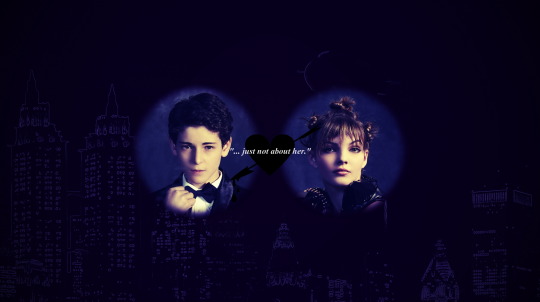
I rarely get flamed on tumblr. I’m unclear why this is so. Maybe my blog is inoffensive. Maybe nobody reads it. Maybe most people just know better.
Today one or more people who clearly did not know better wrote to me. I realize that writing a long, detailed and reasoned answer to four supremely idiotic private messages may come across as pretentious, but I don’t really care. Frankly, they were a godsend, because that allows me to discuss the degeneration of the fandom by example.
Suffice to say the people who wrote to me are those hard at work perverting the fandom down the Road to Hell - a small piece I wrote nearly two years ago to tell people why the Gotham fandom was basically... you know, healthy. That, and how I’d like it to stay that way. Actually, it’s still pretty healthy - the gay bashers, the identitarians and the anal comic book fanatics taken as a whole only make up a fraction of the fanbase.
What is funny, however, is how some of these insults actually make a good topic for discussion. That’s what prompts this post; it’s not a mere counterflame.
So, let’s get down to it.
Like just say you don't like Black People and go [...] gross and transparent, feel free to choke you rancid bitch [...] why don't you tell people the real reason you don't like tabitha you vapid idiot.
Now, this is... how to put it... “how to be an identitarian asshole”?
In fact: this type of “gag order” even forbids you to address harmful stereotypes of these people on television! This would require me to defend Andrei Chikatilo for being a poor Soviet worker because I’m a Communist, or you to defend Margaret Thatcher for being a woman because you’re a Feminist.
Unfortunately, in this rotten postmodern world with fake leftists pissing all over the concept of working class solidarity, this is what people do. If you don’t like Barack Obama bombing the shit out of third world peasants you’re a racist. If you don’t like Hillary Clinton effectively destroying Libya you hate women. It doesn’t matter that both are Imperialist scum.
Please note that my examples were carefully chosen. I could’ve brought up Valerie Solanas - though, let’s face it, the vermin I’m responding to probably likes Valerie Solanas - but it’s far easier to find a Black or a woman than a man from a proletarian background in the position as a world leader... which should tell you were the chief contradiction in society really lies. But, that’s a different story.
Let’s move on...
You ugly fucking roach. You have so much to say about tabitha, but Nothing to say about all the other villains. Not to mention you called her a "thug" [...] how are you going to talk shit about tabitha when you stan and ship 2 murders. [...] both penguin and riddler are fucking evil but you coddle them. [...] riddler is worse than her, he kills for chaos at least when someone dies at her hand it's for a reason!
Wow, that sounds terrible, doesn’t it? Evil Kathemy discriminating against the poor Black woman...
Too bad it isn’t true.
The thing is this: I did not even attempt to bash Tabitha in my first post. I tried to give a fair assessment of her character, as I do with all the characters on the show. I also made this assessment not merely for the sake of putting down the character; I made it to point out why Tabitha and Selina might not be a good team-up. Tabitha is not a good role model for Selina. She’s a negative one, and will probably come off as a warning example in their interaction, which should be of some concern among those who are bothered by “negative representation of people of color on television.” Selina went to Tabitha in search of a purpose beyond survival. What purpose will Tabitha give her?
This is why I live a much happier life than most Nygmobblepot shippers.
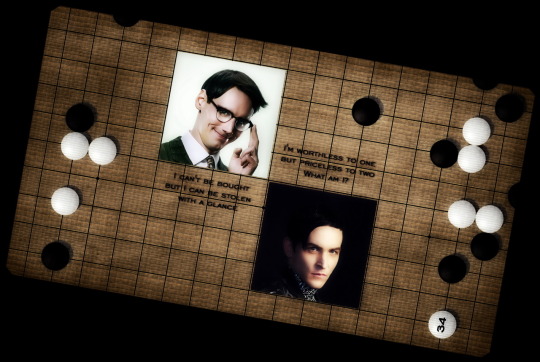
Did you ever see me throw a tantrum at Ed for shooting Oswald? Yes, I enjoy their interactions - how could I not, Cory and Robin are fantastic - but I never lose sight of the bottom line that they are both violent, mentally unstable killers!!! Thus - I’m not surprised by their terrible behavior towards each other and people in general. I’m not saddened by it. I don’t dream up fake head canons of a happy-ever-after domesticated existence for either of them. And, I certainly never make excuses for them, as you do claiming Tabitha “kills for a reason” stabbing an old woman in the back leaving her to bleed out in the arms of her son!!!
I review Gotham for Doux Reviews. Let’s take a look at a snippet from one of those...
The man shooting Oswald at the end is a deeply conflicted Edward Nygma, but this is still Edward Nygma. The notion that he could simply forgive such a betrayal, that he wouldn't consummate his revenge, is completely alien to his character [...] Last episode, in a signature don't-try-this-at-home move, we saw Selina "breaking up" with Bruce by physically assaulting him. [...]
And, Bruce and Selina aren't anywhere near as maladjusted as Oswald and Edward. As intricate as the Riddler's schemes may be, he always chooses the nuclear option in dealing with all his personal problems. Dougherty abused Kristen? Kill him. Kristen threatened to rat him out to the police? Kill her. Jim might be onto him? Kill another colleague and pin it on him to put him in prison for murder. Oswald? He kills people for a sandwich.
<Doux Reviews> <Gotham> <The Gentle Art Of Making Enemies>
Wow, I sure do coddle them, don’t I?!
I called Tabitha “an impulsive thug” because she is an impulsive thug - a violent, reckless criminal prone to making rash decisions. She’s certainly not portrayed as a methodical or calculating person. She doesn’t scheme. In fact in this respect she’s close to Selina, and that’s exactly why Selina has little to learn from her - she’s the same, only worse, only more amoral.
It’s actually true I don’t like many Black characters on Gotham - because there aren’t many Black characters on Gotham. Fish Mooney was a character that outlived her usefulness by season one and wasn’t played by a very good actress. Crispus was a non-character. Essen didn’t get much to do either. Tabitha is a bit erratically written, but she’s actually among the better of them, and I’ve enjoyed her interactions both with Butch, Theo and to a lesser extent Barbara. The only really good one is Lucius Fox, who’s more or less an antithesis of the Black stereotype.
That’s not on me. That’s on the show.
Finally:
your faves are trash and your opinion on tabitha is gutter trash, much like Selina herself. kys
Now, if I were to play your game, I’d conclude you’re a racist for calling a Latino actress “gutter trash” - but I’m not like you. I just realize you have very poor taste.
7 notes
·
View notes
Note
"The 100 is not racist. It's TALKING about racism" ... please explain to me how killing off poc (Wells, Anya, Lincoln) to further the story lines of white people is not fucking racist then. I like many posts you make rosy, but this time you went too far and are playing ignorant mixed with white mentality. If you wanna be insensitive be it somewhere else, but NOT in this fandom. I've had enough of people excusing things in this show, too. And you are one of them
I’m NOT playing. I’m NOT ignorant. I’m NOT white, or at least, I am not only white. I’m mixed race. I’m multicultural and I have a perspective that you don’t. It is not white mentality. If you could see outside of your black and white perspective you might recognize that other viewpoints of less dominant POC are also valid. Did you know that not all POC have the same experience with racism? Did you know that we do not all have the same concept of it? Did you know that POC of mixed race are regularly devalued as minorities and told they don’t count because they’re too white like you just did? You should know, Bob Morley was confronted with this problem. Did you think you were innocent and righteous here?
I am NOT being insensitive. I have AN ACTUALLY INFORMED OPINION ABOUT SOMETHING I HAVE CARED ABOUT AND STUDIED FOR FORTY YEARS since I was a kindergartner in public school in Harlem. You get me? This is my life. You just wrote my experience and identity off in one nasty little anon.
Here I am going on and on about race on the 100 for over a year, because I care about it, and you show up out of nowhere because I’m positive about my favorite show, and attack. Go ahead, search #the 100 is problematic #representation #muticulturalism #race on the 100 on my blog.
YOU are repeating ONE singular view point from the wise and holy Tumblr hype machine. And you think that’s the ONLY way to look at it, and attack anyone who says maybe there’s another perspective.
This is narrowminded. You are making racism simplistic and refusing to look at other issues at play. If you refuse to look at complexity, you are unable to understand the whole situation, and that makes your conclusions weaker.
You hear what I say and you point fingers and call me racist and that is EXACTLY the anti behavior I was talking about. Instead of asking yourself what I was saying and if there was any truth in it, or coming to me to question me with RESPECT, you immediately started throwing slurs around.
First: This is a genre where the characters are all at risk for dying. Therefore, if you have POC characters on the show, especially if you have a predominance of POC characters, which THIS SHOW DOES, then you are going to have POC characters dying. Sorry. That’s not racist. That is the genre. To keep POC out of the story because they’re not allowed to die is awful and would mean we don’t get any representation at all. To expect POC to not struggle or die in a show about survival means you expect the POC to not actually be a real part of the story, separate… not equal. Diminished. You think the POC should have a diminished part in this story that is EXPLICITLY about struggle, death and survival.
Second: Having the majority of the characters on the show being minorities, including main character heroes, means that it is actively and consciously trying to show POC and minority representation, because I guarantee you, you don’t get that many POC characters without ACTIVELY searching them out in opposition to the way hollywood usually casts. No? Don’t care that this show has the best representation you can see, like almost ever? That it represents not just black and white and an occasional latino or east asian, but also people of mixed race, families of mixed race, multiple asians of very different backgrounds, LGBT people, and people who suffer from mental illness and physical disability, and it doesn’t magically heal them? Don’t care that it represents POC as fully realized humans with strengths and backstories and they are essential to the story and the survival of their people? But that doesn’t matter because POC die? As if white people don’t die to further the story? Including the storyline of POC characters? Like, say Charlotte? Aurora? Roma? Gina? Or white people die to further the storyline of white people? Like Finn, Lxa, Maya, Sterling, Fox, Diana Sydney, Monroe, Tor Freaking Lemkin? I mean, okay. POC characters that we loved died. You can’t just stop there and declare it racist. You have to look at the other situations. Do POC characters survive and become heroic? Half of the main characters are POC. So yes. Do white people die to further the plot? YES. ALL THE TIME. What do you call that? It’s the story. POC take part fully in the story. The story has characters at risk of dying. If they don’t die, they work to become heroes. Are POC characters sidelined? No. Are they cardboard characters? No. Are they sidekicks? No. Do they have character development? Yes. Do they have main story lines? Yes (Not only is Bellamy one of two heroes, but the Arkadia storyline was almost entirely told by and with POC characters.)
Third: Everything that happens to a POC character is not necessarily because of racism. POC get to exist outside of their race, ethnicity, and color. This is not to say that it doesn’t matter, but sometimes characters die because of their actions, the actions of their parents, their own self sacrifice, tragic mistakes, vengeance, abuse of power, the apocalypse. And every single character on the show lives and dies to further the plot. There is no story without them. What happens to them, their torture, deaths, victories, loves, failures? All there to further the story.
Fourth: The fandom is far more racist than the show is, excusing all the crimes of the white characters and turning the POC characters, who suffer and are challenged because they are heroes, into the villains. The story isn’t doing that. The fandom is. Be suspicious of people’s interpretations, because they are not always right.
You wanna call the show racist? Go ahead. Stop watching it. You shouldn’t watch a racist show. They are offensive. I don’t watch racist shows. I watch shows that allow POC characters to be fully realized human beings and take part fully in the story, including the suffering.
You don’t like POC suffering? Don’t watch this show. It is about suffering. There are many main POC characters. This show will make you unhappy. Seriously, this is the wrong show and genre for you. It’s not racist, it is a poor fit for what you are looking for. Which is POC in a happy, peaceful world where they get to live happily ever after. THIS IS THE WRONG SHOW FOR YOU. Like I said, much of the criticism of the show is a misunderstanding of the genre.
You wanna call me a racist? Fuck off.
#the 100 meta#in defense of the 100#in defense of me#the 100 is problematic#but not in the way you think#representation#multiculturalism#what the fuck is wrong with you assholes
25 notes
·
View notes
Text
Using Data to Protect Voting Rights in 2020 Part 2
I forget his name that he is that you know as your group basically is your group working with them to try to get some kind of equity and but the fair map in the way is drawn thank you for your questions the short answer is yes to all of the above definitely want to echo and lift up everything you just said we have an Illinois a law in place to require civics in high school and actually the governor just signed a law to require civics education in middle school I believe just a few days ago and we see that as being really encouraging I can't take any credit for any of those bills but we do see it as encouraging we also hear feedback from folks at times that teaching that kind of information in it could totally depend on the classroom as far as whether that's an effective way to get the message across there are gonna be some there's some really phenomenal engaging civics educators who have figured out ways to I mean we all want to know the secret to civic engagement and we all want to know how we can empower community men our own community members and people who we care about and some folks have figured that out and then there are other places where there's a disconnect where the person giving a message I may not be effective in all settings if I'm going and telling someone how important voting rights are and what we think is really important is the peer led model as much as possible and so it was actually incarcerated community members and students who came up with the idea of the civics in prison bill that soon to be signed into law and who said you know this has to be peer led this has to be on the inside someone like me is not gonna be as effective in that setting as someone with a life experience to talk about the importance of civics and importance of voting not just voting talking to our elected officials finding other ways to empower our communities and make a positive impact on our communities and there are great organizations like McCormick Foundation and others who have been at the forefront of civics education in the classroom to directly answer your question but as you can tell I also think that civics conversations outside of the classroom are super important as well the census is something that's going to affect us all in Illinois more gravely than in other parts of the country you've probably heard that we have a very strong chance of a severe undercount in Illinois of losing one or more congressional districts and because that is has been set into motion because of nonsense conversations and back-and-forth about a possible citizenship question because of you know real infringement to our community members rights we all stand and lose in Illinois regardless of our race unfortunately because if we have fewer members in Congress which is what is set to happen we all are going to suffer from less funding and and less of a count of our voices now it's not too late to try to make an impact in that regard you mentioned some local elected officials who are trying to make a difference at the state and county and city level that's really encouraging Illinois officials and I have a lot of critical things to say about Illinois candidates and elected officials but I have to say they've really put themselves out there to say that community groups need to have funding to do the hard work of knocking on doors of making sure that their community members are counted and that people who are commute trusted community leaders are probably going to have a lot more success doing that then a random official who's detached from the neighborhood daily life so really encourage anyone who's involved with the community organization to think about getting involved in applying for funding to help with census outreach or to get involved in the census counting effort in one way or another but it is also this the fights that have been happening about advocacy relating to census I think are foreshadowing some of the fights that we could expect when it comes to redistricting which would likely be happening after the census count is done and unfortunately it's been census has been one of the recent excuses for some of our elected leaders to pit Communities against each other and to pit communities of color against each other and I think that's a false choice I don't think we have to choose either having robust just as an example either having robust black representation or having robust Latino or Asian representation we're all gonna rise and fall together when it comes to being counted and and Illinois hopefully being represented well in the future okay so I'm going take a question from the agenda it says do you work with any people with disabilities because it's also an issue for people with disabilities thank you I want to put a spotlight on the work of a great partner organization of ours equip for equality that has been doing some groundbreaking work to negotiate with the Chicago Board of Elections to improve access ability in Chicago polling places in particular every election we also do get questions as Chicago lawyers Committee from community members with disabilities but the folks who are doing this work day in day out like equip for equality I really want to make sure to mention them because we learn from groups like that as well as National Disability Rights Network about how to improve access for all marginalized community members including voters with disability with disabilities including people of color with disabilities so it's all we also don't see it as necessarily just one distinct group or another in regard to the previous question I also wanted to mention a partner of ours Chicago votes who's been doing parades to the polls to walk with high school students from their classes to an early voting site and have a party and that's also helped to boost high school civic participation especially on the south and west sides of Chicago students graduate you should happen to pull they should have a diploma in one hand and a voters registration card in the other if anybody thought of that or you know it seemed like it I don't know I seem like it's not really it shouldn't be a real hard thing because when I was in high school which was a long time you know we had like civics in high school and I've got my first registration card it in high school and I've voted every sense and I using it as example that you know I think the public school system or the school system period should do something to try to get you know students before they graduate to at least get a voter to register for voters registration card I don't know it you know have y'all ever looked into you know something like that one of the things related to that that we are working on and certainly not just us a broader coalition of community members called just democracy Illinois all nonpartisan organizations is automatic voter registration so it's something technically that's part of Illinois law although it's in the very early and unfortunately flawed stages of implementation and the concept behind automatic voter registration is that if our state government already has our information in a database either through getting a driver's license or public benefits or another state system if we've already given documentation of our age and our citizenship status then why not add us to the rolls unless we wanted to opt out and so that's something that the Illinois politicians the Illinois members of the House and Senate all approved unanimously in 2017 and then Governor rauner signed it into law but making it a reality so that there are actually large numbers of people who are eligible but not yet registered added to the rolls again unless they wanted to opt out getting it to be a reality has been difficult and I think part of the reason has been state government systems changing because change is hard and change can be expensive and I definitely respect the incredible work that many of our government leaders and personnel do but we also think that the excuses aren't enough and there needs to be more to put laws like that into action because there was some really sound policy that work that went into putting those laws together so that it would ideally make our election system more secure and voter rolls more up-to-date so that when there is someone who becomes eligible or if someone's moved or their status changes so that that's all updated as seamlessly as possible but in practice that hasn't much been happening yet I think's again for presenting so my question is gone around the the the story told about the poll worker who intimidated that voter and also kind of your answer you just gave to the that previous question around sort of seems like I'm detecting a theme around there's there's putting laws into place and then there's actually like following through and making sure that they're actually like followed through and like implemented tying those two together like what is your sort of broad like strategy for following through on that like what do you do like what are the repercussions to a poll worker who is like behaving perhaps illegally right in that situation and like what are the ways that in which you engaged to actually do that follow through in these different cases for issues at the polling place as much as possible we try to address it real time by collaborating with election officials so that ideally the voter can vote that day that's our primary goal is to try to figure it out from a problem-solving point of view making phone calls going in person to the election officials we have people planted there at there and I don't mean planted and like a surreptitious for hope door but we have people who are stationed there all from our staff all day long which is I when I ask that question to election officials of whether they were okay with that and they said yes I thought is there a catch or something but actually we've been doing that the last few election cycles and I really admire them for letting us do that again given that we complain about them and complain to them I think it's a really good sign of a sign of good faith that they're willing to do that so that as much as possible real time if we can address something that's the best situation so that we're not why on earth would we want to fight a lawsuit about that later if it means someone can't vote that just is not the most efficient way to try to tackle it so what we try to do is advocate to the election officials who are going to be the decision makers about is there grounds to fire someone or to mandate retraining of someone who's disenfranchising people in that way the example that I gave to you from South suburb far south suburb what happened there is that the the top election official in that jurisdiction one of the county clerk's agreed with us that that practice that was happening at the polling place was wrong called the people who work at that polling place on that day and said look you've got to stop impermissibly asking people for ID there's a small minority of situations under Illinois law where someone should be asked for ID go ahead and ask them in that situation but don't just go asking everyone who comes in the door this is also a 90% black suburb it's not fair to ask everyone who comes in the door for their ID but that phone call happened late in the day so there probably were many people who were excluded earlier on so then we try to be as preventative as possible the next time around talking to those clerks talking to this staff about these are the I mean as as robust as our data can be in our tools to share the data like that mini website or other tools then we could hopefully effectively persuade the decision makers about practices they need to improve before the next time around we see litigation as a last resort there are some times we have to file a lawsuit and we hope that we could resolve the issue in some other way if as much as possible you'll have to excuse any ignorance of why we don't vote just online like what are the barriers to that and why like are there legit reasons from I guess I don't know your perspective of why that would be not good at this point in the homework I've done thus far and I am really hungry to learn more about this topic because something about the system or various parts of the system definitely need to be more easy and accessible to eligible voters but in the research I've done thus far I haven't seen compelling information that we're there yet in terms of the technology and the systems to make that happen securely and I I hope that I could be proven wrong eventually but when I'm seeing nonpartisan civic organizations like verified vote who we've worked with before national lawyers Committee for civil rights others who have been monitoring the election security scene and conversations and Washington DC and Beyond I'm not convinced yet that people's information and choices would be secure I'm coming around to the idea that our Illinois election officials are keeping our are making strides to better protect our voter registration information after that infamous hacking that has been you know it's all over the headlines about Illinois in particular and I do think that the State Board of Elections and other local election officials in Illinois are trying to learn from those vulnerabilities and do better for the future elections but that's just our voter registration information like for me it would be my name my address certain bare-bones information about whether I voted before but not who I voted for that's not who I voted for is not something that's stored right now but if we're talking about online voting and there there are organizations there are some advocates out there who feel differently and who are looking at certain kinds of technologies that they hope could overcome the security worries and so I think it always should be part of the conversation to evaluate those with rigor but I haven't seen compelling information that were there yet from a security point of view but online voter registration does exist and definitely want people to use that I think that everyone weren't um hello thank you for presenting a newly effective way to do voter suppression is through coordinated disinformation campaigns you only need to get a few thousand voters in let's say Michigan or Pennsylvania to not vote in order to have a substantial effect on an election is this terrain that your organization has a policy position on and is this something that even has a legal approach that would help to remedy some of the prevailing concerns I would love to learn more about that area because I think my ex Bertie's Evette areas at the level of reading we're all reading the same similar headlines about that and it's scary I can tell you that there's missin there are misinformation campaigns and voter intimidation that happen every single election in Chicago and Illinois I'm not trying to be alarmist because I'm I do think our voting system is overall good here and I encourage people to participate so I'm not trying to scare anyone or suggest that our elections are invalid but every election especially hotly contested elections in Chicago and Illinois we see things come up that if a national reporter heard about it they would be up in arms and it would make that that news cycle but because it affects fewer number of people and it's especially if it occurs in an odd number year where there are elections that affect our daily lives for a village trustee or an alderman or other positions like that is just not something that as many people pay attention to we as a voting rights and civil rights organization do pay attention and we've have found that those elections are the times in Chicago and Illinois where we have to be even more ready with non-partisan poll Watchers with attorneys who are trained up in other volunteers who answer the phones or help voters in person because that's just a constant threat my theory has been that that happens anytime there's a close election like the data point you shared about when it really comes down to not that many votes people have more at stake and they're more likely to try to a campaign our candidate is more likely to cross the line in terms of what's allowed to get a few voters because it could make the difference about whether they win or lose I still think my theory is is pretty much correct about you know we all heard about elections in 2019 in the city and suburbs where people elected officials literally won by a few votes but another theory I heard recently from a lobbyist is that when there are jobs to be handed out that in thinking about the context of Chicago and Illinois politics especially that's when there is this vulnerability to misinformation of voters and manipulation of voters or outright vote buying or forcing which happens today unfortunately probably at a much more miniscule level than it happened in the history of Chicago but it still happens today so we have to remain vigilant if there are players out there who are eager for a certain person to get elected into office so that they have some sway about who gets on the payroll that's another very real sort of political pressure that's out there
https://youtu.be/O78jCdLCHsg
0 notes